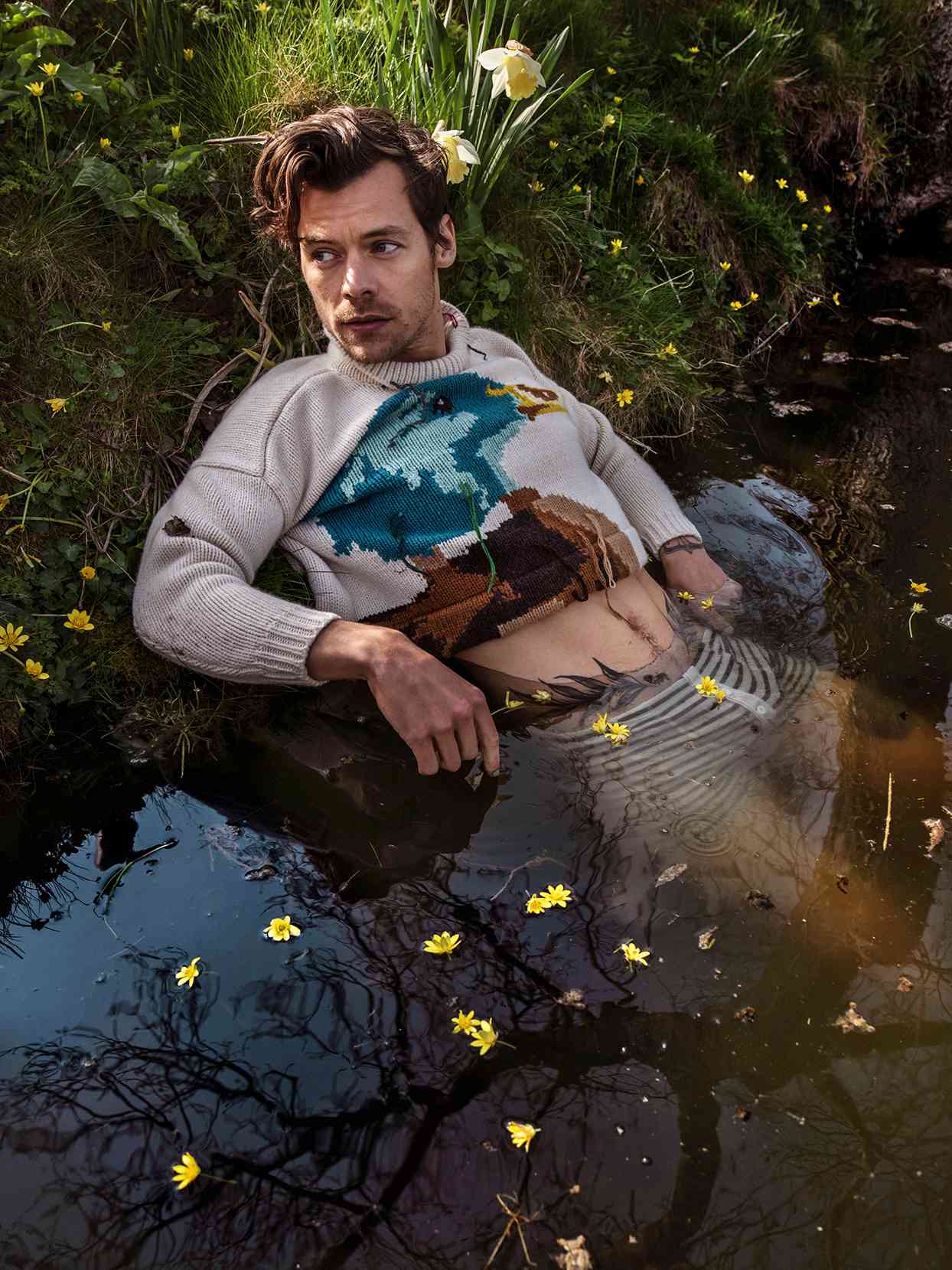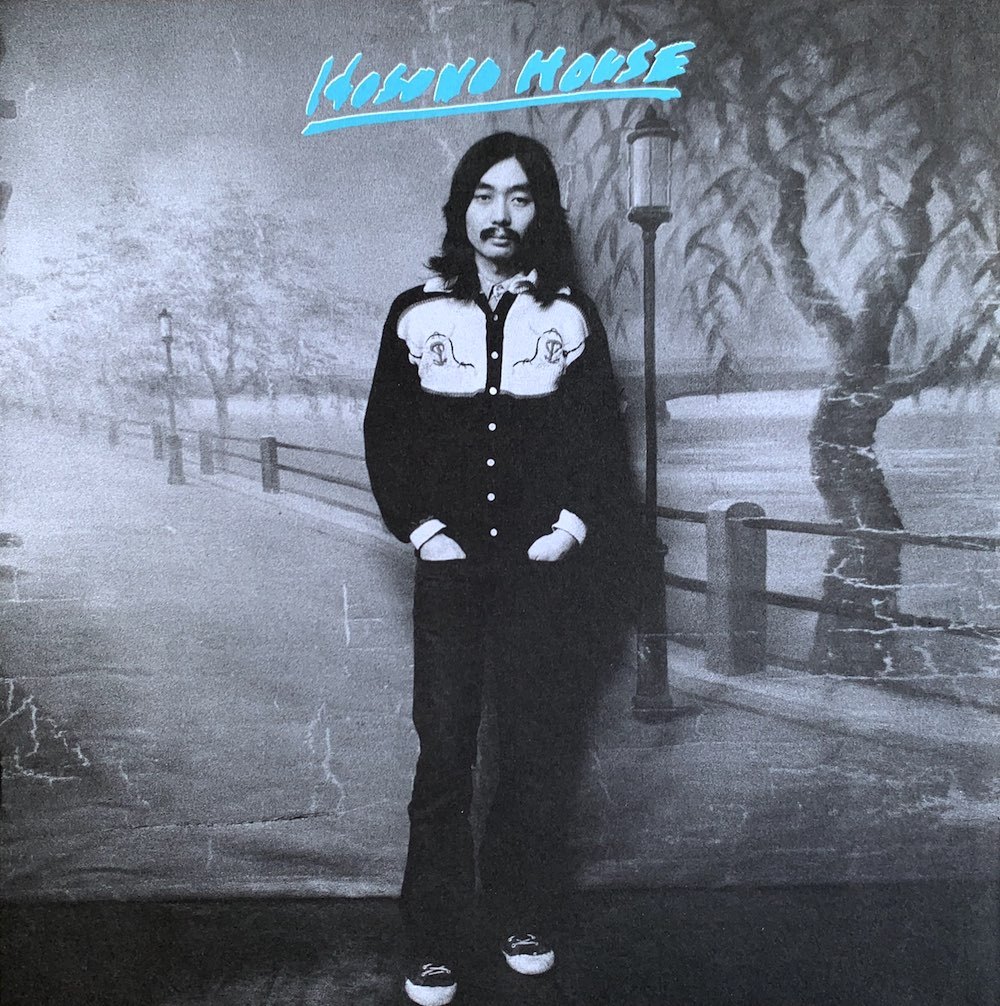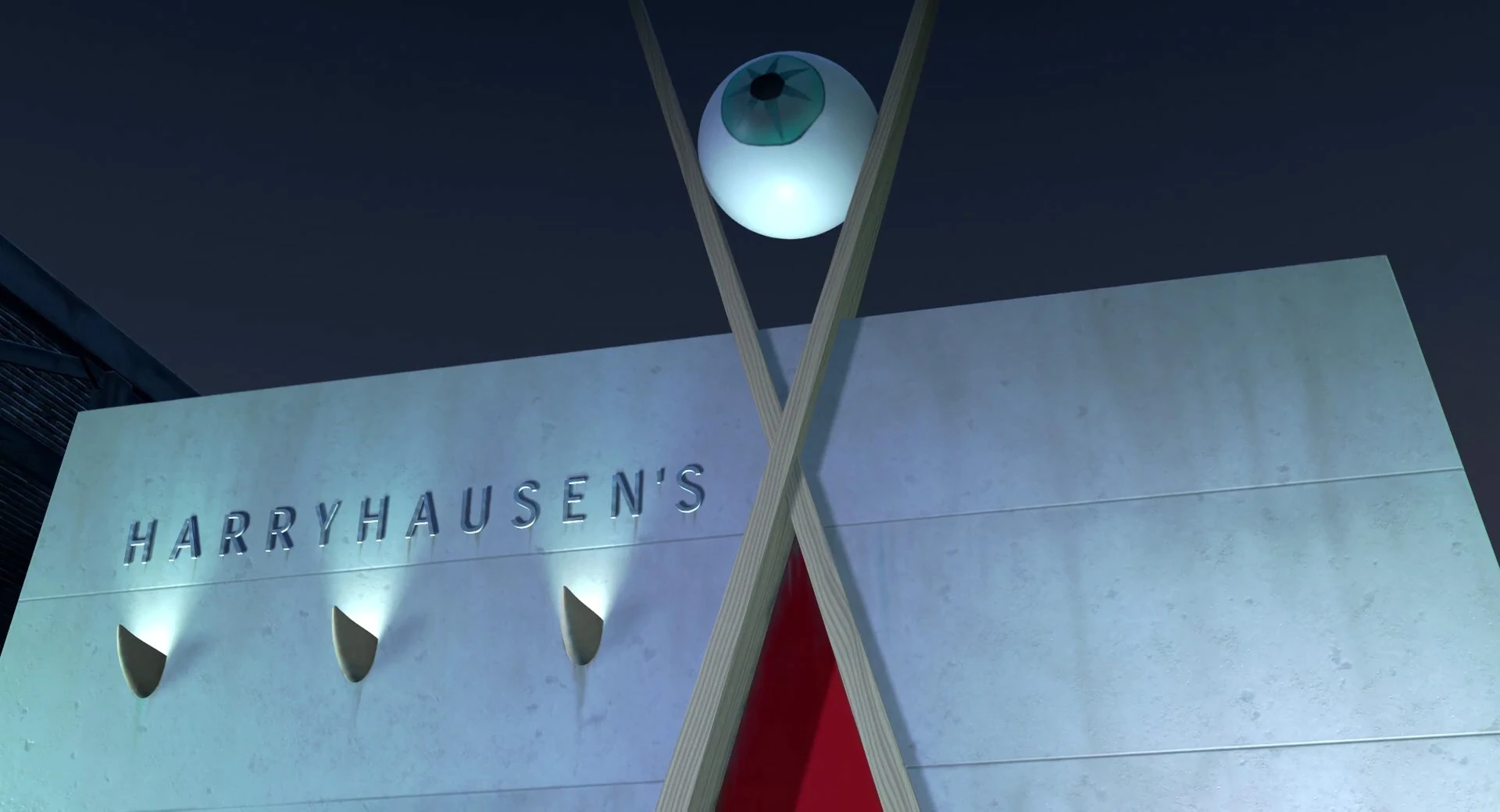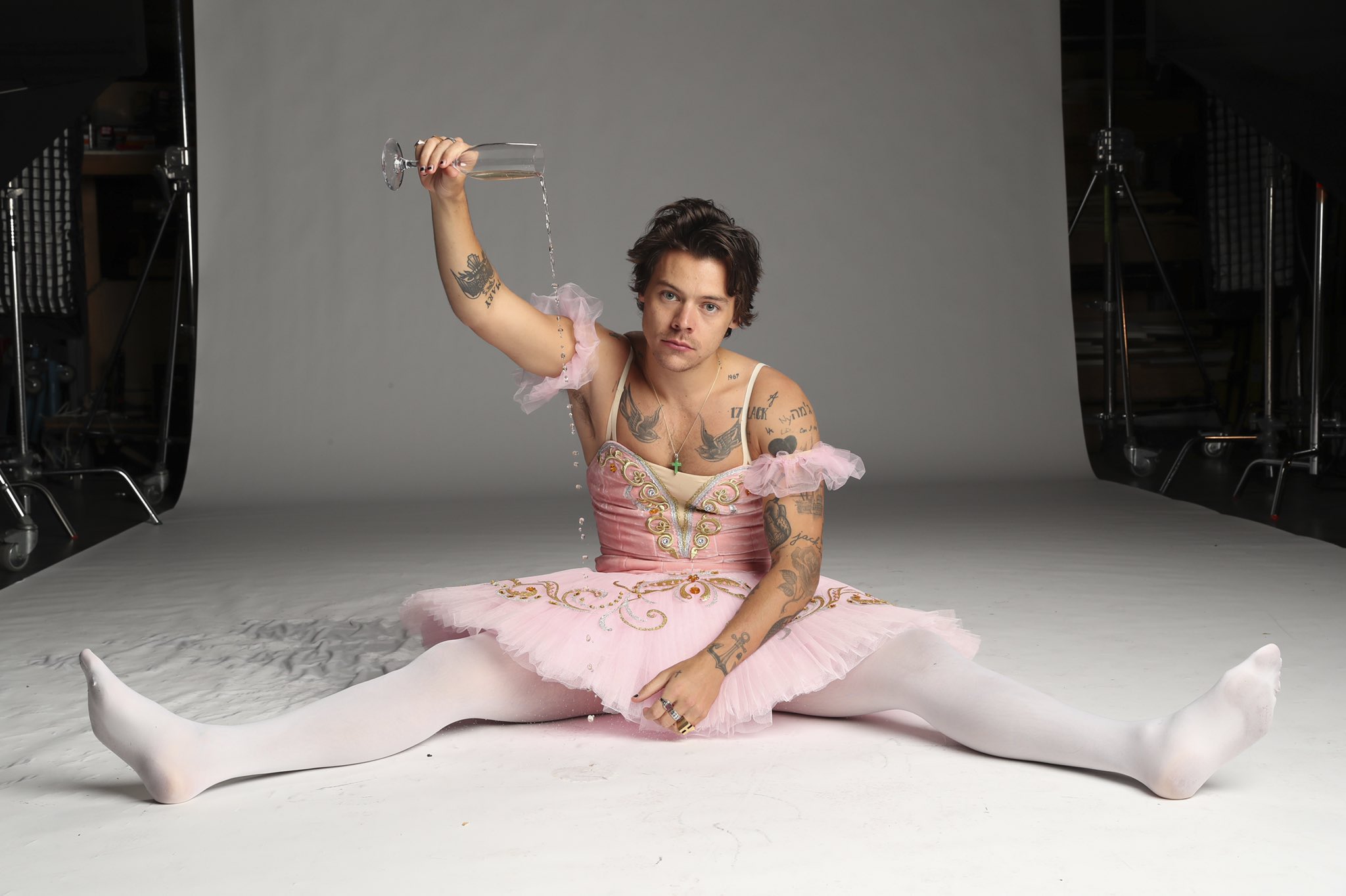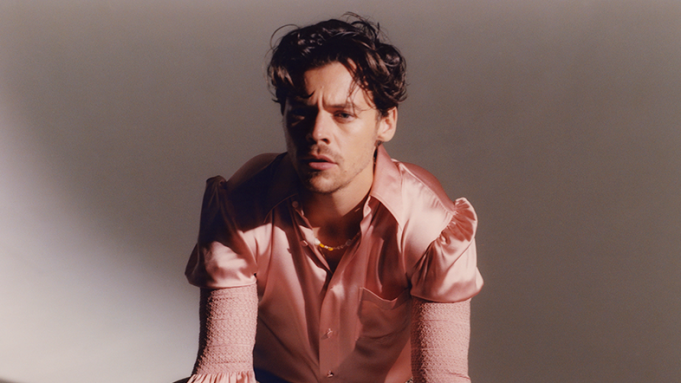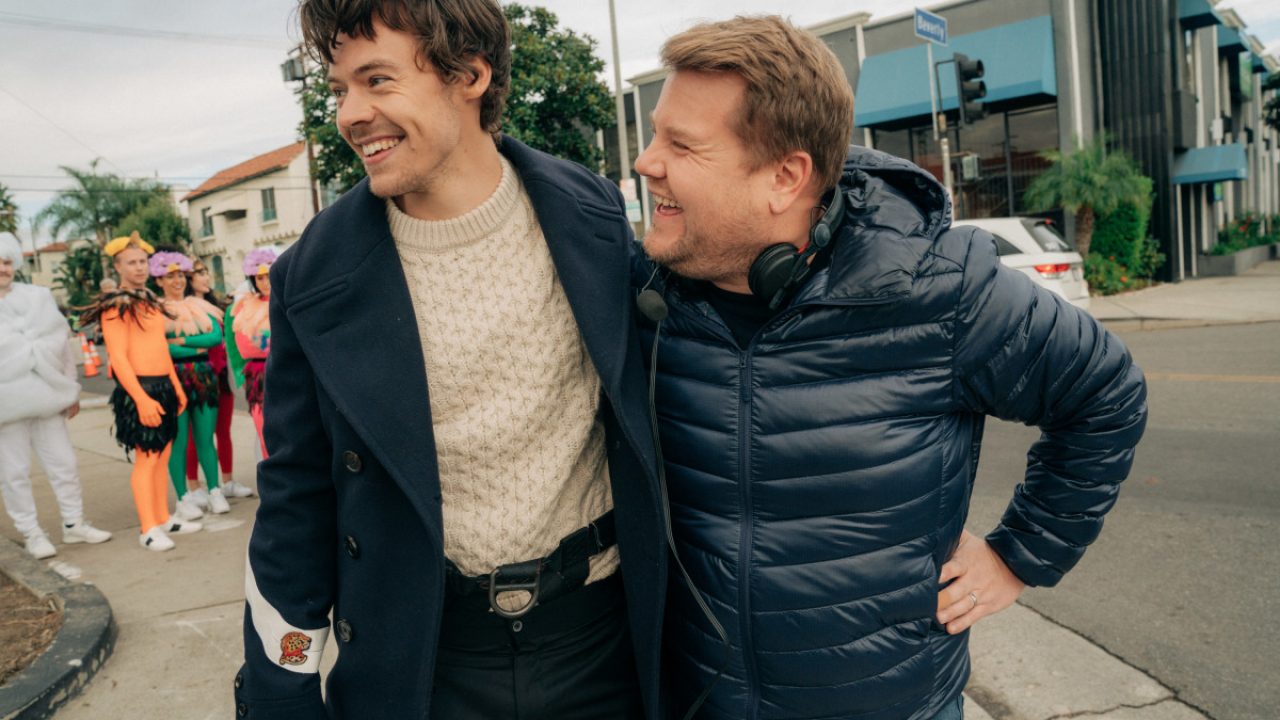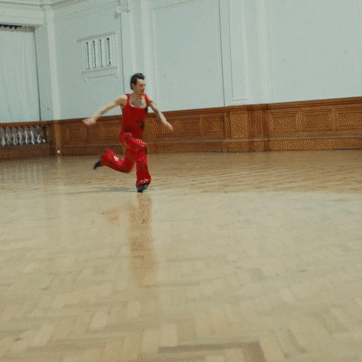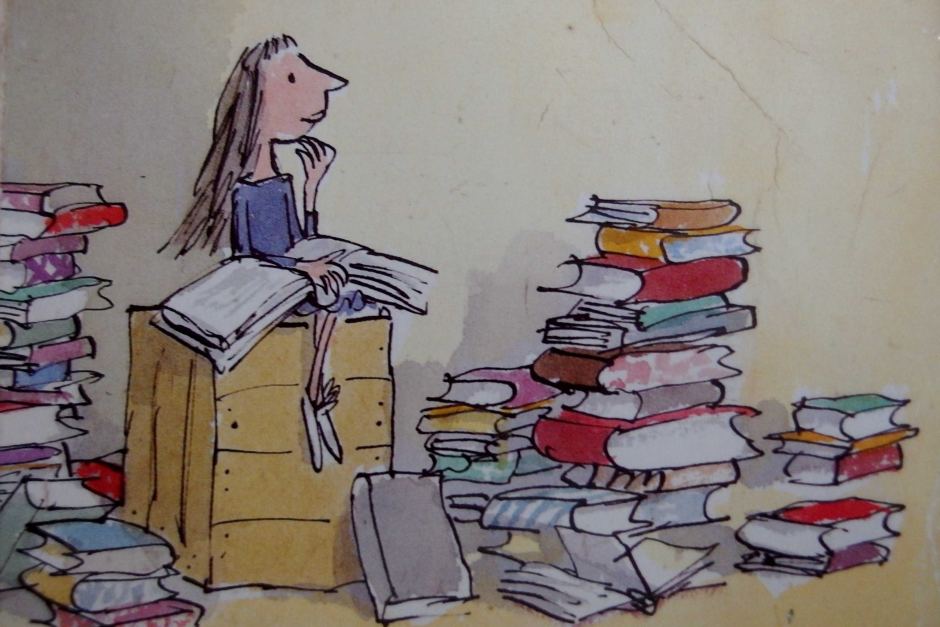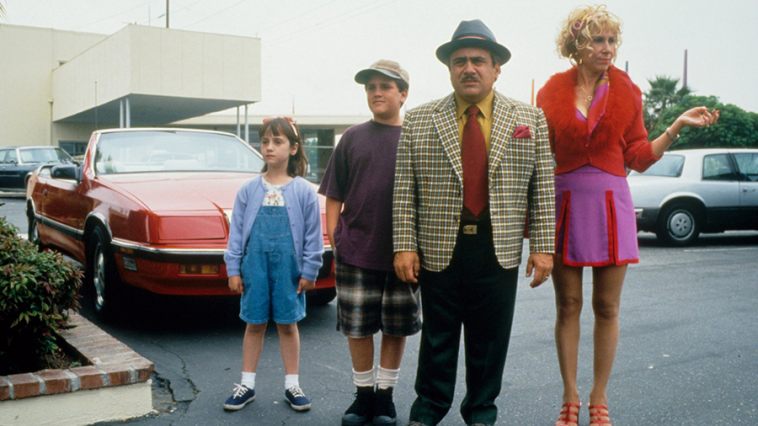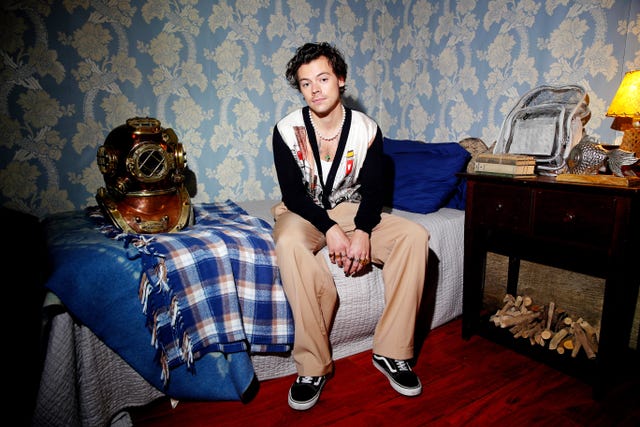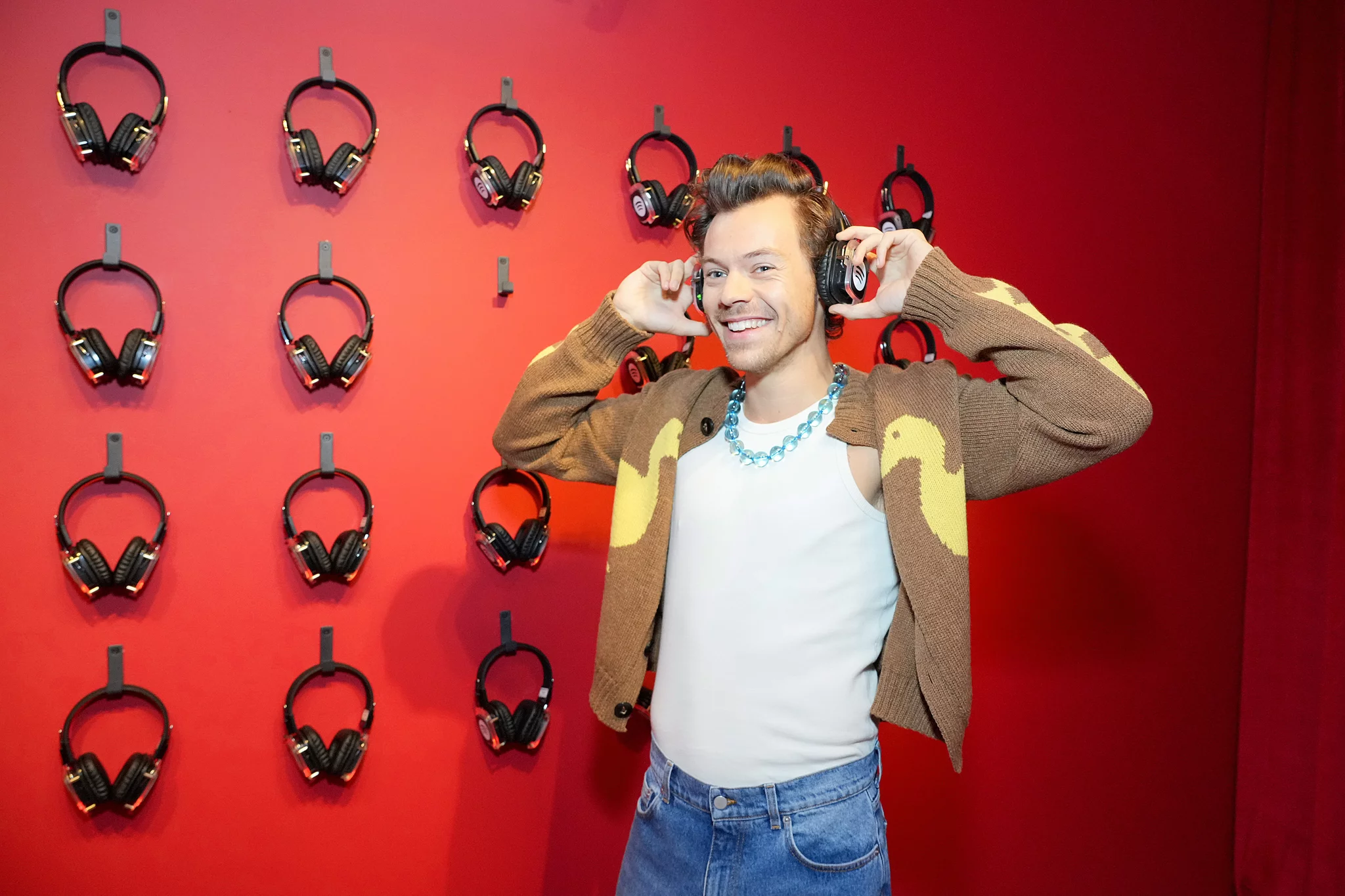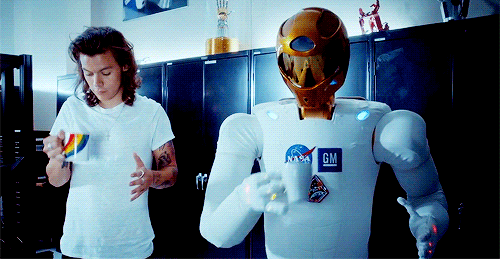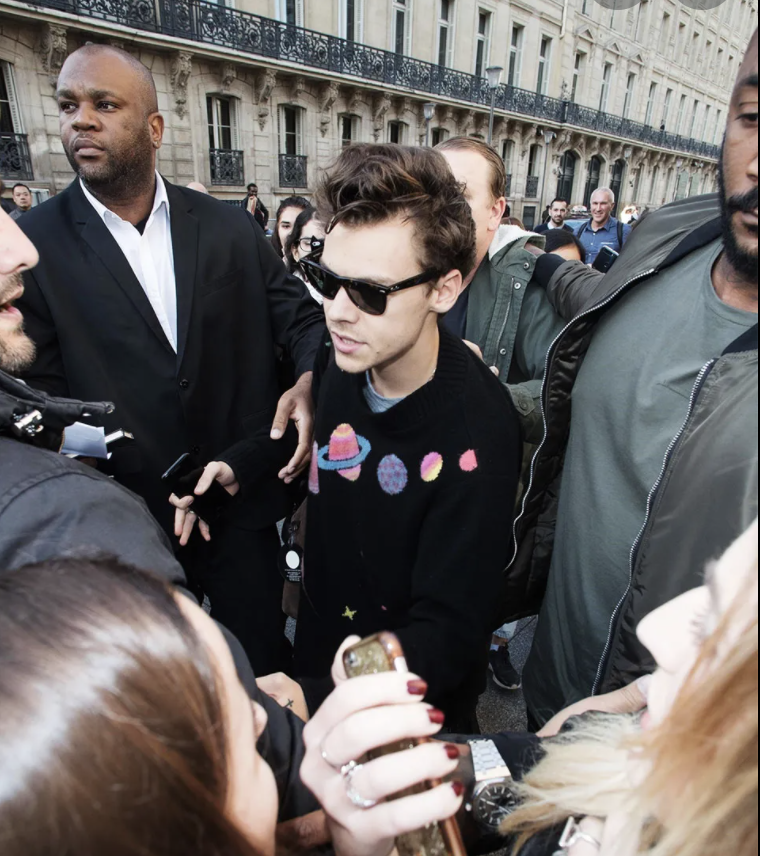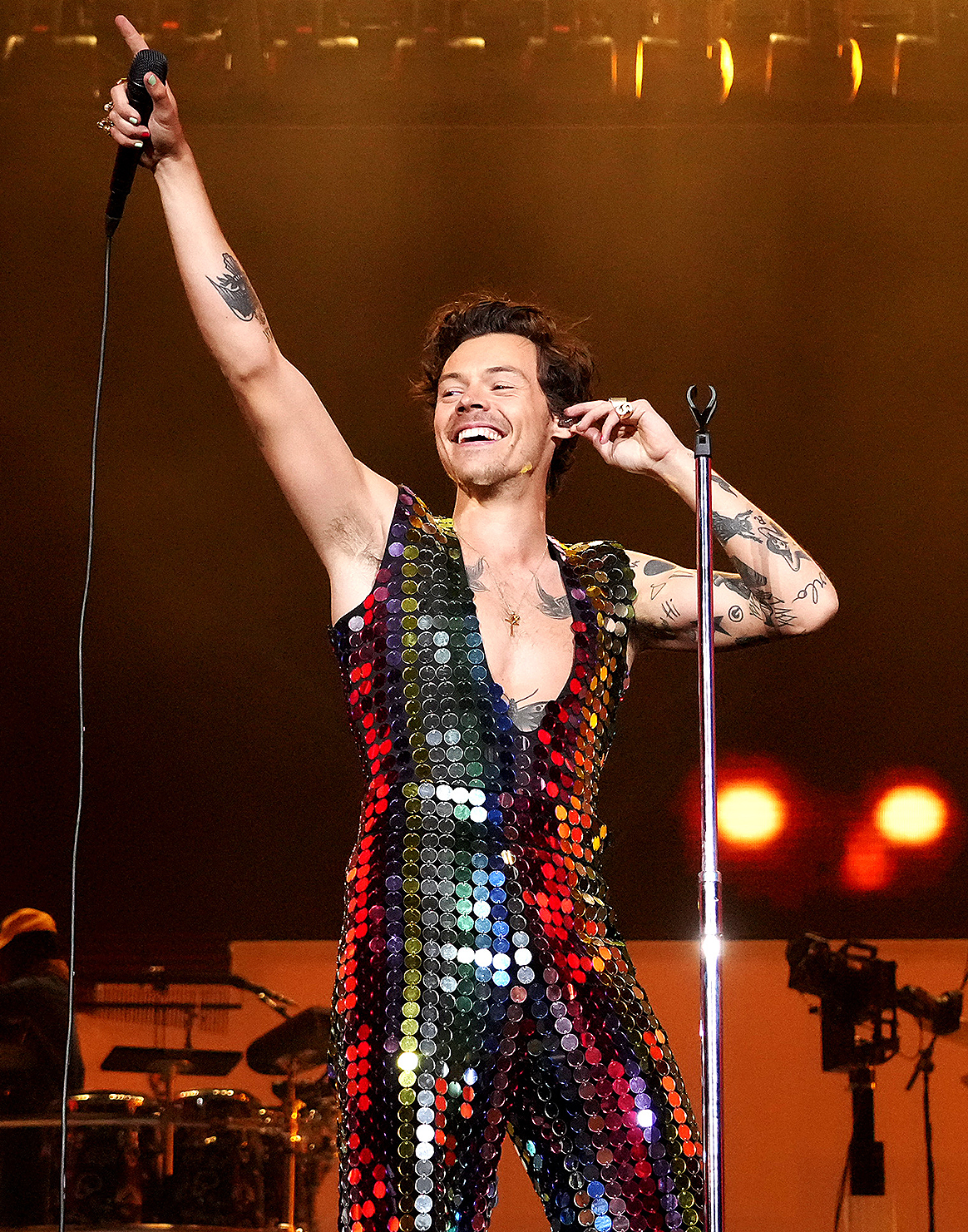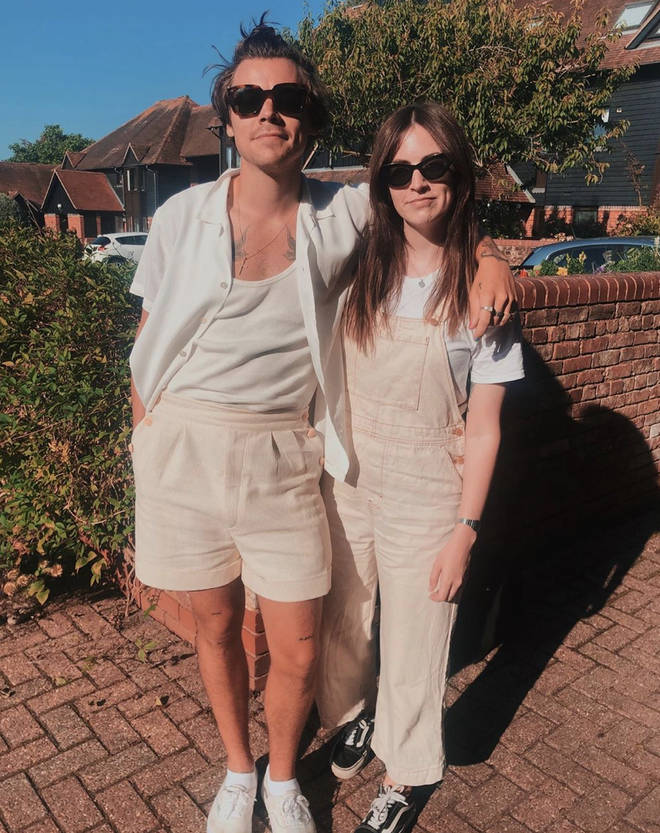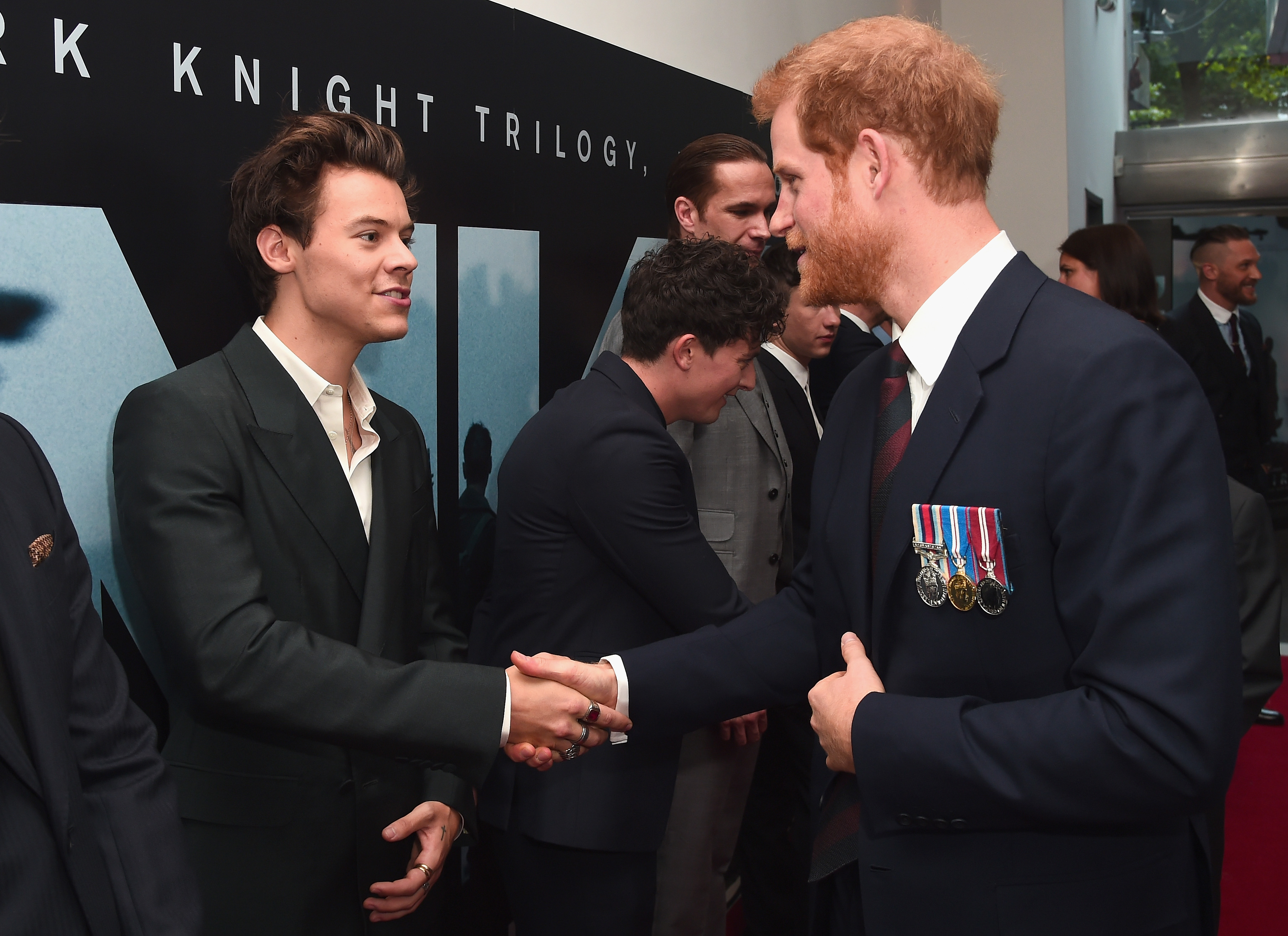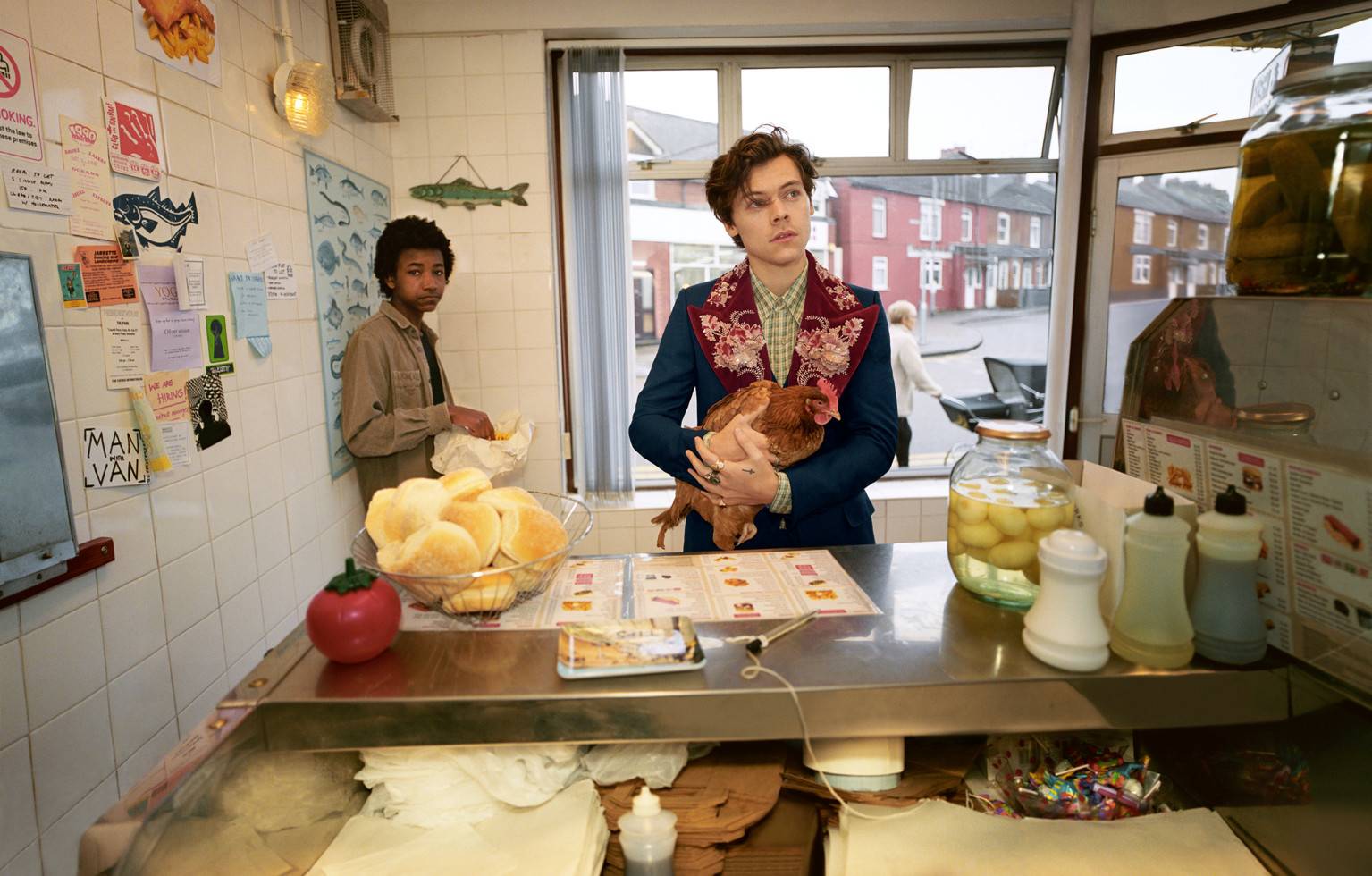After a star-studded Coachella stint, rising to a new level of celebrity status, Harry Styles’ third album Harry’s House was highly anticipated. He is more comfortable on this album — even the press outfits include fewer Gucci suits and more large sweaters, flowing blouses, stretchy jumpsuits and pajama sets. As an artist, performer and adult, Harry Styles has established his own sense of home.
This album had the potential to bring him to another level of stardom, beyond his already impressive status in the musical world. While this album has done well commercially and been received well by critics and fans alike, it wasn’t necessarily the absolute breakout project some thought it may be.
Harry’s House is a more acoustic and softer project from Harry, veering into the likes of yacht rock and Steely Dan’s Gaucho album at times. Some have argued that Harry is a rockstar, but this album is the work of a popstar innovating in his field — it’s easy listening in the best possible way. It’s warm and sunny and very reminiscent of the era of warm pop rock in the early 2000s to mid 2010s. This generation featured the likes of Train, John Mayer, Jack Johson and Jazon Mraz. Mayer is aptly featured twice on the album playing guitar.
In an interview with Better Homes and Gardens (yes, the magazine issue we all pestered our grandmothers with subscriptions to send us), Harry shared that this album is his most “intimate” and even his “favorite.” While the infamously private artist does not really bare too much beneath the surface through his lyrics on this album, this solo project is also the most similar to the work he did in One Direction (1D). Harry has made a concerted effort to never bash the work he did in 1D and even served as a foil to former bandmates who have discussed feeling trapped creatively within the band. Harry has often said that he enjoyed writing pop music and crafting albums within that genre (perhaps not on that timeline), and this album makes it apparent that he wasn’t just saying that to keep up appearances. Harry’s House is a much more mature version of his prior pop production.
Harry Styles is openly a music nerd. Everything from his dulcimer obsession to his manager is inspired by his greatest influences. This album is no different. Harry explained that he named Harry’s House after Japanese pop pioneer Haruomi Hosono’s 1973 Hosono House album.
It will be interesting to see where Harry goes after this album, as it feels as though he’s hit the edge of his current enclosure and is beginning to climb the walls. He maintained his same collaborators on this album, tapping the likes of Tyler Johnson, Kid Harpoon, Matt Wolach, and Spike Stent. Although this album has divested from the rockier elements of his previous two projects, Harry’s House feels like proof of Harry developing his own distinct style as a songwriter, musician and performer. Harry’s House is a cohesive, well-produced and distinctly Harry Styles’ album.
Music for a Sushi Restaurant
Starting the album with an electric and immediate reference to Hosono’s style, “Music For a Sushi Restaurant” feels like the early U.S. boom of sushi bars in the 1990s, featuring dim lighting and oranges and greens. The production of this song is simultaneously modern and nostalgic. It actually conjures up images of “Harryhausen’s Sushi Bar” from the 2006 film “Monsters Inc.”
The title of this track was inspired by Harry’s visit to a sushi restaurant, which feels similar to when fans will compare upbeat music to “Old Navy commercial music,” and so on. This feels like Harry’s way of saying to fans, “Prepare yourself” for the completely different sound on much of this album. It’s also the first of many, many food references on this project. It’s Harry’s House, and fans are spending lots of time in the kitchen with Harry.
“If the stars were edible/And our hearts were never full…Could we live with just a taste?” Harry asks. Champagne is compared to consuming the stars, making another possible reference to food. However, he could also be singing about the climb to fame and the desperation to get an even bigger bite out of the industry. Harry had said that he heard his music playing in a sushi restaurant, which he found amusing and ill-fitted to the setting, which is a sign of his own stardom.
The chorusing also sounds distinctly similar to China Anne Mcclaine’s “Exceptional,” the theme song to the early 2010s Disney Channel show “A.N.T Farm.” This television show aired during One Direction’s heyday, so it’s no surprise it shares a similar demographic as Harry’s early fans from 1D, who are now in their 20s but still familiar with the theme.
The presence of a bright horn section and a bouncy beat is quintessentially Harry Styles. It’s easy to imagine Harry and Pauli bopping to this beat in a stadium, fans dressed as sashimi abound.
Late Night Talking
Opening with a similarly electronic trill, “Late Night Talking” quickly divests from the sounds of “Music For a Sushi Restaurant.” This is a percussion–heavy horn-laced synthy track that was teased to fans during Harry’s first Coachella (Harrychella) weekend.
This song is smooth and overflowing with the sounds of the ‘70s. The talk of a “haze on the horizon” and themes of change could be applicable to the pandemic or to Harry touring. Broken cameras and needing help to get “through” conjure up images of a superstar and his girlfriend struggling through an international tour. The synth trills can serve as the sounds of the crowds calling out to Harry, or to the couple.
At first glance at the title, one could think that perhaps this song is about Styles’ close relationship with late night show host James Corden or his time guest hosting the show, but there appears to be a more emotional theme at the core of this song. It could be about the time differences between friends and family in different parts of the world, or the insomnia of the pandemic, or about touring the world and only finding time to yourself in the dark.
Both Camille Rowe and Olivia Wilde, Harry’s most recent public partners, have toured with him. Much of this album centers around Harry’s personal life in isolation, hypotheticals and Rowe, but there has been speculation that this track is about Wilde. The sudden and illicit lyrics about abruptly needing to constantly speak with someone but only being able to talk at night could be applicable to Wilde and Harry.
Even without the presence of his romantic partners, Harry desperately and definitely wants someone to stay in contact with him. He sings, “We’ve been doin’ all this late-night talkin’/’Bout anything you want until the morning/Now you’re in my life/I can’t get you off my mind.”
Grapejuice
Another food reference being served up to fans, “Grapejuice“ centers around the drinks. The introduction countdown sounds similar to Niall Horan’s “Slow Hands” and nearly any of Silk Sonic’s tracks.
1982 was one of the best years for French wine, immediately establishing an element of opulence. He talks about spending more money than he used to, investing in flowers and drinks for one specific person. This song is all about the wine and the languid experience of drinking with a person until you’re sad and consumed by them.
Harry sings, “Sittin’ in the garden,/I’m a couple glasses in/I was tryna count up all the places we’vе been.” Even if was alone in quarantine (although he shared that he just wanted to be a normal person and did not write any music in lockdown), this is Harry’s way of indulging in luxury.
As It Was
Playful, poppy and the perfect single for this project, “As It Was” is distinct and slightly melancholic from the opening cries of his goddaughter demanding he call her back, the pout palpable in her tone as she says, “Come on Harry, we wanna say goodnight to you!”
It’s difficult to avoid imagining Harry doing the choreography to this song when listening to this song, hands in the air and knees high. His sparkly red jumpsuit is now a look for the ages. The song centers around losing time, anxieties and trying to cling to those you love. Harry discussed his childhood without his father and the passage of time.
This theme of change is fitting for fans who have followed Harry since his 2010 X-Factor audition when he was 16-years-old. Even the voice of the goddaughter matches this meaning, as Ruby Winston is the daughter of producer Ben Winston. During the early years of his celebrity, Harry lived with the modern Orthodox Winston family, as he directed a number of 1D music videos, their “This Is Us” film, the “Late Late Show” and the Grammys. Harry and his former band mates could be seen holding Ruby as a baby over the years, which makes the precocious nature of the voicemail all the more impactful.
The tolling of bells after the final chorus acts as the musical representation of days and years slipping away.
Daylight
Sunny and warm, “Daylight” is a cocaine-fueled track about being fully enamored with someone. He sings about nosebleeds in the kitchen as he describes staying awake all night and calling someone at all times.
Harry doesn’t want it to become daylight because that’s when he has to bid the person with whom he is obsessed goodbye. He mentions being a bluebird to fly to someone, a potential reference to the 1D song “If I Could Fly.“ Harry describes wishing to be honey — a sickly sweet, ancient and non-exportable substance — alluding to his passion for this person.
“Daylight, you got me calling at all times/Ain’t gonna sleep till the daylight/Daylight, you got me cursing the daylight,” Harry sings in the chorus.
Little Freak
When the track list was released to this song, fans assumed “Little Freak” would be a roaring and sexy track like “Kiwi” or the unreleased “Complicated Freak.” However, this song is a gentle and melancholy reflection. It’s sensual in its familiarity with the subject, handling the person with intimacy and delicacy, though it’s not explicit or illicit.
The bass is even more stuttering and resigned than on previous tracks. Harry is thinking, he’s sorrowful and he’s got a single person on his mind. “I disrespected you,” Harry admits. He feels secure in himself and he’s not jealous, but he just wants to get back to where he once was with the subject of the track.
“Little Freak” is arguably the more detached and (slightly) emotionally matured version of his 2017 song “Woman.” On both tracks, listeners can find raw emotion and jealousy. Harry employs even more listing as he sings, “You sit high atop the kitchen counter…But your gift is wasted on me…Did you dress up for Halloween?/I spilled beer on your friend, I’m not sorry/A golf swing and a trampoline…Tracksuit and a ponytail/You hide the body all that yoga gave you…” This acts to develop a sense of previously established closeness.
This song is the feeling of saying goodbye when you know it’s time, recollections of a person who you didn’t lose in a fight but grew apart from with time, the sensation of memories going stale, overplayed favorite songs and sunlight dancing across the face of someone you love.
Matilda
On “Matilda,” Harry utilizes into fewer vague references and dives headfirst into storytelling. Although he is an accomplished songwriter, direct storytelling has not been a facet of his catalogue in 1D or beyond.
Using English author Roald Dahl’s classic “Matilda” as inspiration, he talks about a young person struggling with her family. She’s departing and distancing herself from a family that never understood her or treated her well.
Traveling the world and finding your own passions comes with guilt for the subject of this song. It isn’t necessarily about outright abuse, but about small things that add up and leave bruises when you’re looking hard enough.
“Nothing ’bout the way that you were treated ever seemed especially alarming till now/So you tie up your hair and you smile like it’s no big deal,” Harry gently reassures the subject, “…You don’t have to go home…I don’t believe that time will change your mind/In other words, I know they won’t hurt you anymore/As long as you can let them go…You can start a family who will always show you love/You don’t have to be sorry for doin’ it on your own.”
He suggests Matilda frame her posters and dye her clothing — permanent actions utilizing previously possessed items. Harry gingerly packs this song with comfort foods, bike rides and seeking a kind love that doesn’t require you to earn it.
The fervency of a child trying to bike so hard she flies away is poignant and crushing, painting a painful image of a person who is unloved turning into a wounded adult hiding behind convincing but insincere smiles.
Cinema
“Cinema” is a spinning and sexy track. Harry is so casual as he sings about the subject, “I just think you’re cool.” He sounds as though he wants to be laid back, though he continues to ask questions in search of validation. It gives the impression that this is what it’s like to be in Harry’s sphere — chill and noncommittal, but obsessive all the same.
This track is one of the more rare ones from this project that is about Olivia Wilde. A film director, she does have that cinema.
While songs like “Woman” and “Only Angel” are sexy in a smeary dark eye makeup, loose glitter and leather way, “Cinema” goes for a more comfortable and personal warmth. This is an acoustic guitar in the backyard on a summer evening, not a crowded club full of strangers.
Daydreaming
Jazzy and upbeat, “Daydreaming” is a lighthearted and playful take on a relationship. Harry is happy with something being more physical and distant than it is deeply emotional.
The horn section and the echoey choruses of cheers sound similar to something like the title track of his album Fine Line. Harry croons, “Livin’ in a daydream/She said, ‘Love me like you paid me’…give me something to dream about.”
There is frankly little substance to this song, which mirrors the song’s meaning. Things remain on the surface level.
Keep Driving
Another pandemic comfort, Harry beckons listeners to jump in his passenger seat and take a drive. The simple pleasures of a slightly worn car, sunny skies and breakfast foods reign supreme on this track. He leans further into listing during this song, as his observations while looking out the car window range from weed to riots for social justice. He even mentions “tea with cyborgs,” which he participated in during one of 1D’s final music videos, “Drag Me Down.”
Harry sings about pancakes for two, a more childlike dish that conjures images of a couple hunched over a spread, after deciding to not stop their journey.
Satellite
Gentle beeping and more synthy production help create the opening to Harry’s space-leaning track. He sings about the distance he feels from those in his life. Harry provides a connection to the great beyond, but he is relegated to that darkened void on the outskirts of the rest of the world. He can look on at those around him and provide them with greatness, but he is merely idling. The lyrics contain the story of a tumultuous relationship filled with distance and uncertainty.
The extraterrestrial nature of this track is similar to the experimental album from his tour manager Pauli The PSM (read more about that project here). The lyrics centering on lonesomeness and general isolation present in this song tie into the pandemic-era themes present on the entirety of Harry’s House. He mentions being in an “LA mood,” as he spent much of the deepest throws of the pandemic in Los Angeles, California. Dramatic crescendos mirror the feeling of a person or machine spinning out, twists and turns abound.
Boyfriends
“Boyfriends” takes Harry even further back to his roots, serving as some sort of adult/acoustic version of “What Makes You Beautiful.” While Harry has absolutely no obligation to label his sexuality or reveal his personal relationships to the public, without the context of his own experiences, “Boyfriends” feels as though it’s written for women, and like it’s a form of pandering. Harry did explain that the song is not about past relationships of his own, but that it serves as a reflection upon his own behavior and what he witnessed his sister experience.
Instead of a personal song, “Boyfriends” feels a bit more like it returns to his origins of writing songs that, in some sense, are crafted to serve a young, female audience. While it isn’t going full, “Hey girl, I would never treat you like that,” the listing of complaints and attempts to sing from the perspective of a person rebuking a boyfriend comes off a bit like Bo Burnam’s “Repeat Stuff” 2014 boyband song.
The rewinding noise in the background creates the vision of someone going back in time to gaze upon a failed relationship. However, the vague nature of the lyrics makes it seem as though this is less of an admission of guilt on Harry’s part, with him being “the fool,” and more like he’s looking out to a crowd of women and saying, “Ugh, men, right?”
It fits with the general easy listening nature of the project, but it is not one of the stronger tracks off the album.
Love of my Life
Harry finishes the album strong with “Love of My Life.” Orchestral, grand, emotional and packed with personal details, the closing song is one of the strongest tracks from the entirety of Harry’s House. “Love of My Life” is a powerful love song, something Harry doesn’t necessarily write. He crafts tracks containing lyrical nuances from a person who had been in love or a person entertained by the idea of being loved, but since the dawn of his solo career, it’s been made clear no one is going to claim Harry is the next great wedding songwriter of his generation. “Love of my Life” is not about a person, like “Cherry,” or even a point in his life, like “Canyon Moon.” Instead, this song is about a place: England.
There is such reverence and tenderness in this song, typically reserved for love songs about people. In fact, it nearly sounds like he’s singing to a person throughout most of the song. Harry explained to Apple Music, “I’ve always wanted to write a song about like home and loving England…” He has written songs about New York and mentioned LA, but England has been primarily absent from his solo works.
Harry was not one of the members of One Direction who traveled through Europe by backpack or openly longed to settle into a quieter life in the UK. He went off to Los Angeles, and so his love affair with England was further stinted. He sings about not knowing the edges and depths of England as well as his friends and admits he hasn’t been doing what he can to remedy that. Although Harry still maintains property in London, he spent the majority of the pandemic away from England, hiding out in LA or Italy. He mostly has the memories of his childhood to comfort him and inform his relationship with England, as he sings, “Remember back at Johnny’s place?”
He sings in the past tense, as though his relationship with England was a marriage that ended amicably. Harry’s family often talked in interviews about how he was just a boy who left home and never returned, and in many ways that impacted his relationship with his country as well. At one point he was just a teenage boy working in a bakery, considering going to college for law, and then he was flying around the world. The album “Midnight Memories” and even the 2013 “This Is Us” documentary reveal the taxing nature of living in isolated hotel rooms, only experiencing glimpses of the real world in the wee hours, all while going through the most formative years of your life. Harry didn’t have a real home for much of his life, and now he is trying to create it through music.
Harry Styles’ homage to his homeland, “Love of my Life” is a song for those with complicated relationships with their hometowns, those who adore where they came from but feel insecure claiming it, and even those who immigrated great distances from their homelands. On the last track of his album, Harry Styles offers Harry’s House to those without a home.
You can stream Harry’s House everywhere now!



